It is always, or rather, it should always be a cause for concern to see the monopoly of violence in any country completely controlled by a few citizens. All countries have a security sector that protects citizens from both internal and external threats. This security sector is composed of institutions that work together to protect country and people.
The institutions play differing roles in maintaining peace, law, order and other forms of security. They also defend the nation from all threats, including natural disasters.
To ensure the security of the state and its citizens, a country must have a sector with integrity and trust that enjoys a monopoly of violence. No other institutions outside of the security sector are allowed to use violence. This monopoly of violence may “belong” to the security sector, but for peace and security to prevail, the monopoly must be controlled by civilians.
In Zimbabwe, the Zimbabwe Defence Forces, the Zimbabwe Republic Police and the Central Intelligence Organisation are the key institutions tasked with protecting the country. Also involved in the governance of security in Zimbabwe is the state and its three arms — the executive (Presidency), the legislature (National Assembly and Senate) and the judiciary.
These arms of the state should play a managerial and oversight role in making sure that the security sector does its work efficiently, transparently, legally and with integrity.
Citizens of Zimbabwe, through civil society and other private institutions such as the Human Rights Council, also have the mandate and responsibility to ensure integrity and accountability in the control of the monopoly of violence.
This means that, according to Zimbabwe’s 2013 constitution, the armed forces, the state and the people of Zimbabwe must together control the monopoly of violence. On paper, everything looks good. But in reality, security sector governance in Zimbabwe is a ticking time bomb.
2017 coup
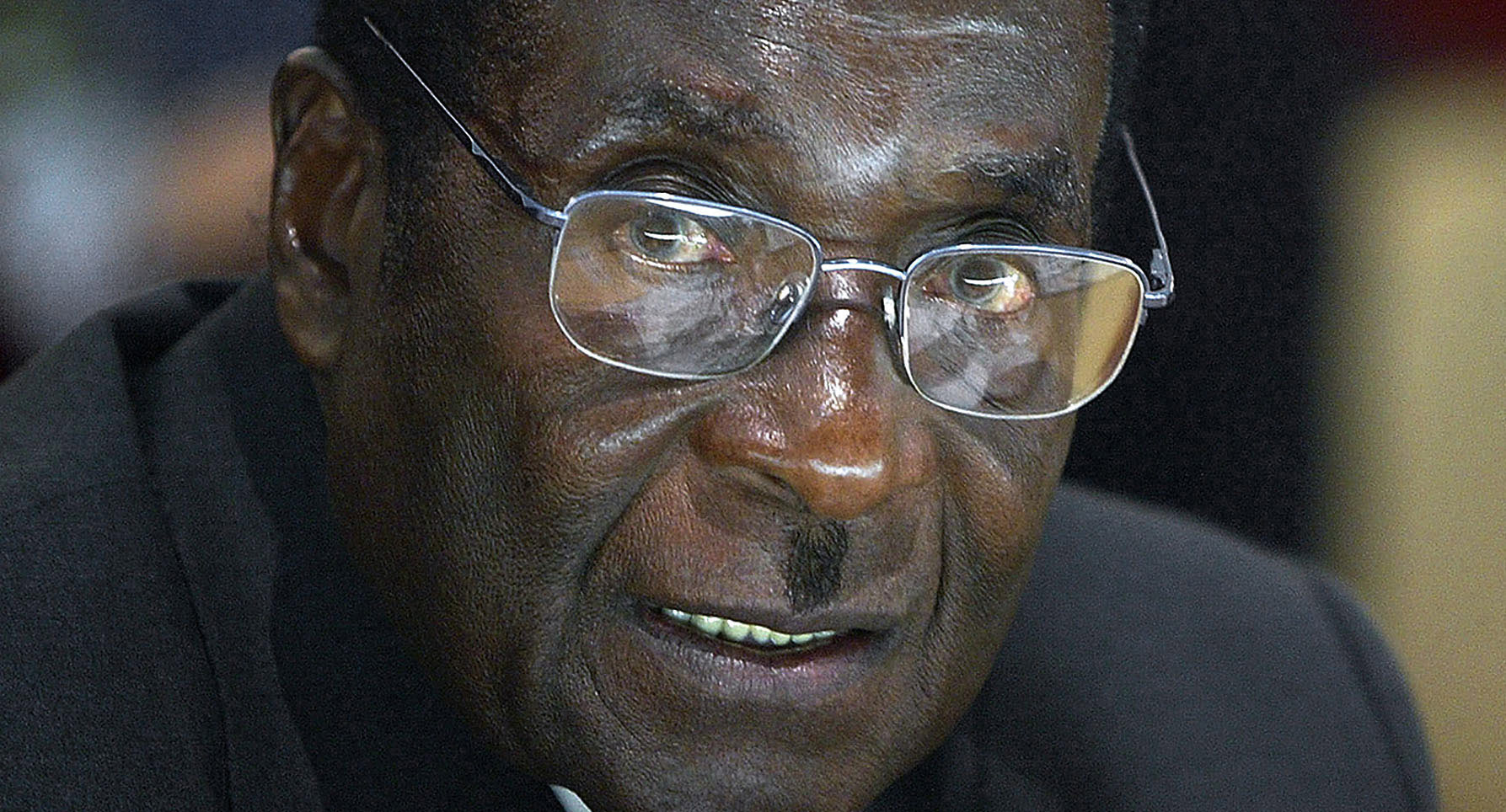 The late Zimbabwean leader Robert Mugabe. (Photo: Pascal Le Segretain / Getty Images)
The late Zimbabwean leader Robert Mugabe. (Photo: Pascal Le Segretain / Getty Images)
In November 2017, eight months before the next election was due to be held, several generals from the Zimbabwe Defence Forces staged a successful coup that unlawfully removed then president Robert Mugabe from power.
Many Zimbabweans ignorantly cheered this unconstitutional move. They celebrated not because they supported the generals and their chosen successor to Mugabe — Emmerson Mnangagwa. They cheered because, for decades, none of the constitutional methods available to change the president and parliament had worked.
Unfortunately, as Zimbabwe cheered the removal of one oppressor (Mugabe), they inadvertently sanctioned the ushering in of another (Mnangagwa). In actual fact, the real oppressor, Zanu-PF, was never removed — it just changed the face of the system.
The coup was a bold exhibition of how control of the monopoly of violence in Zimbabwe was not in civilian hands, but in the hands of army generals.
In an unprecedented, unconstitutional move, instead of being deployed by the president as per section 213 of the constitution, the Zimbabwe Defence Forces’ generals had criminally and unlawfully deployed themselves.
They were in control of the monopoly of violence; they were in control of themselves. Answerable to no one and accountable to nobody.
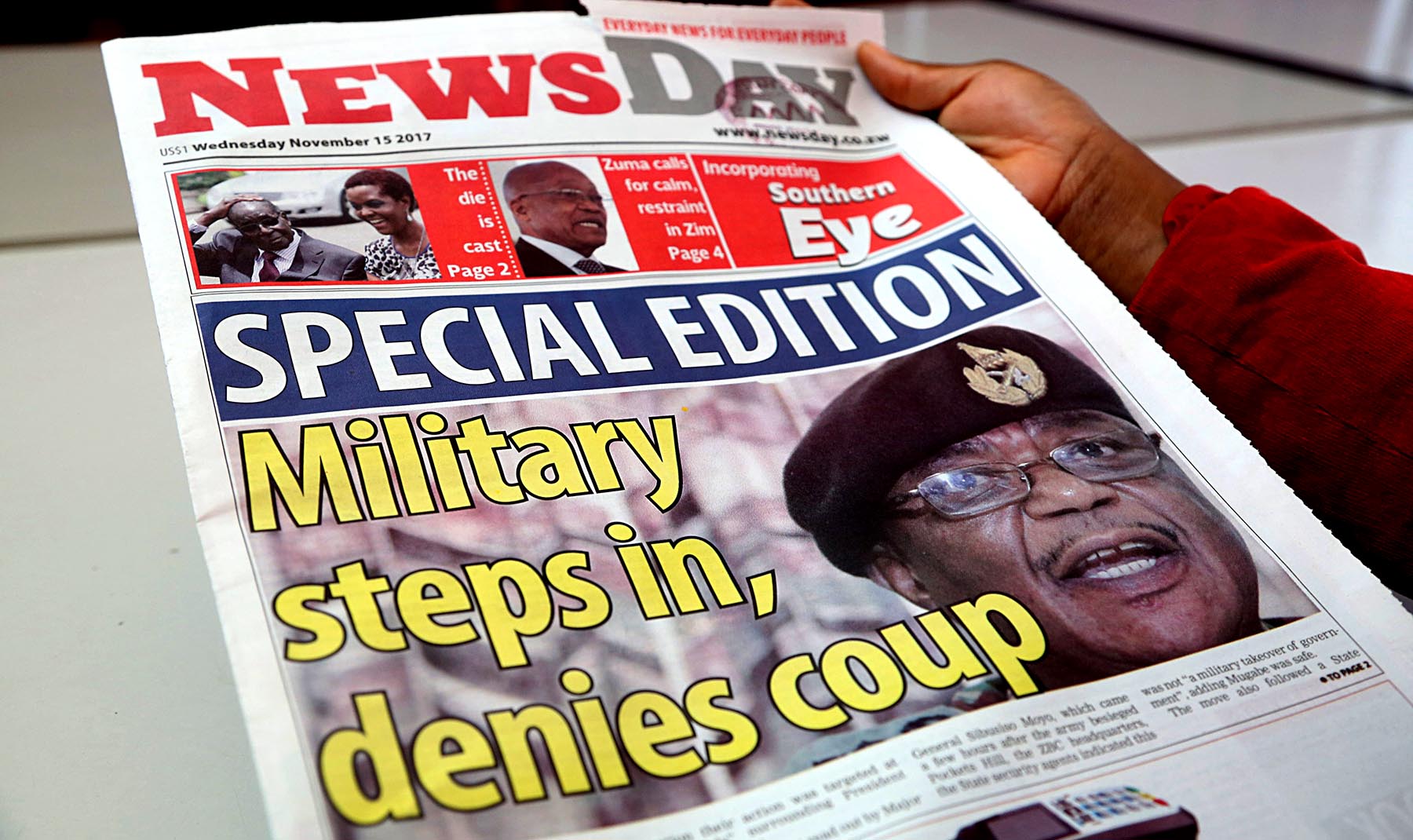 A woman reads a copy of the special edition of a local daily in Harare, Zimbabwe, 15 November 2017. (Photo: EPA-EFE / Aaron Ufumeli)
A woman reads a copy of the special edition of a local daily in Harare, Zimbabwe, 15 November 2017. (Photo: EPA-EFE / Aaron Ufumeli)
The coup also completely violated the rights of Zimbabweans to elect a president of their choice. Upon taking control, the first casualty of the generals was not Robert Mugabe, as many seemed to believe — it was democracy.
Thirty-seven years after independence, which was achieved on a “one man, one vote” slogan and campaign, the generals shamelessly reversed that independence by imposing a new president on Zimbabweans.
On 24 November 2017, Emmerson Mnangagwa was installed as the third president of Zimbabwe.
He hit the ground running, trying to cure the illegitimacy and unconstitutionality of his presidency and of the coup itself.
He promised to hold free and fair elections in Zimbabwe. He also went on to appoint one of the coup generals, Constantino Chiwenga, as both vice president and minister of defence. This left some, like me, wondering: who exactly was in charge?
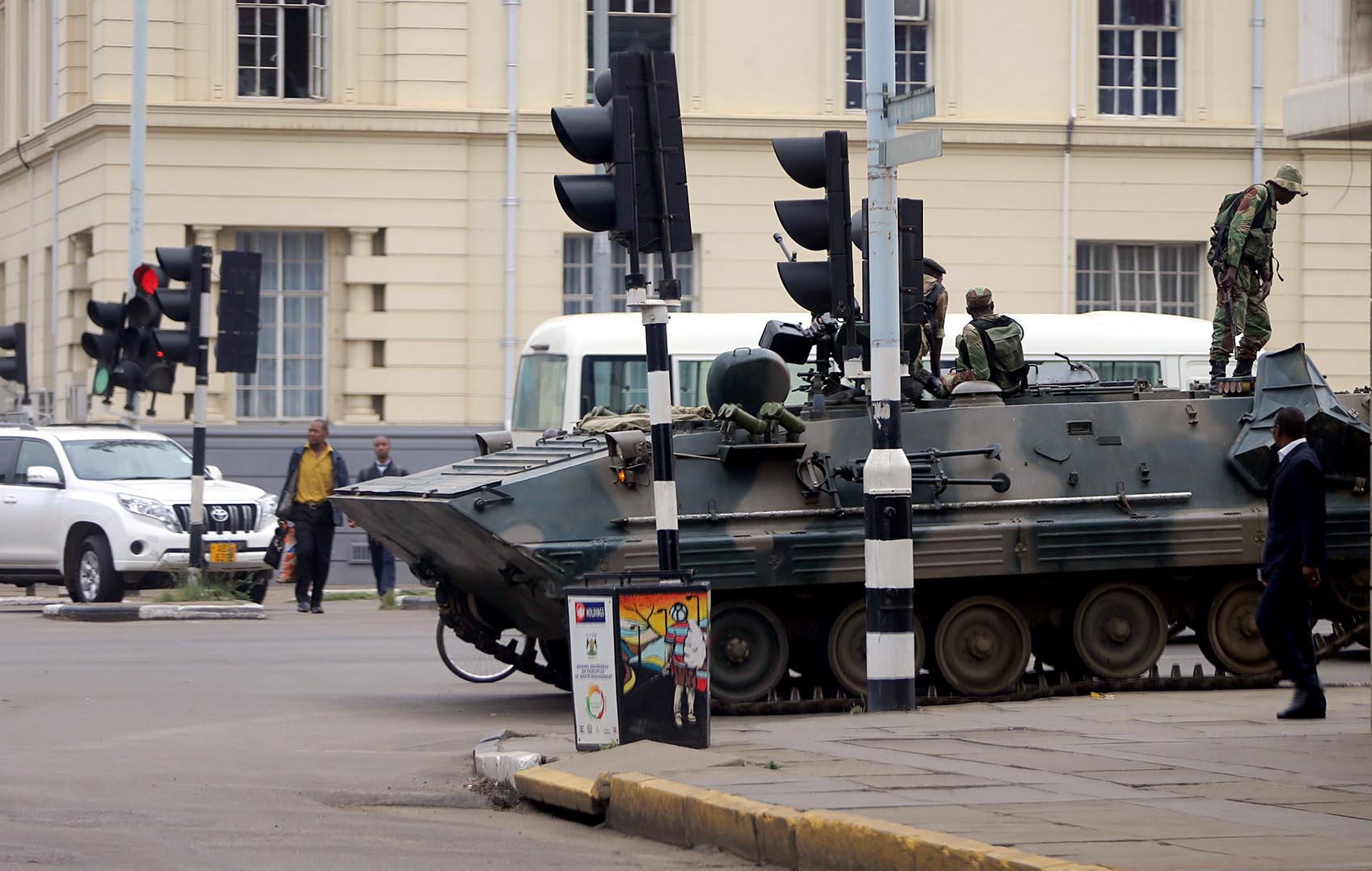 Soldiers in an armoured vehicle parked in the central district of Harare, Zimbabwe, 16 November 2017, a day after the Zimbabwe National Army took control of the government from President Robert Mugabe on 15 November 2017. The military denied it had staged a coup d'etat. (Photo: EPA-EFE / Aaron Ufumeli)
Soldiers in an armoured vehicle parked in the central district of Harare, Zimbabwe, 16 November 2017, a day after the Zimbabwe National Army took control of the government from President Robert Mugabe on 15 November 2017. The military denied it had staged a coup d'etat. (Photo: EPA-EFE / Aaron Ufumeli)
The appointment of Chiwenga as vice president and defence minister served two main purposes with respect to the control of the monopoly of violence in Zimbabwe.
First, the appointments served to turn Chiwenga into a civilian — a key requirement to legitimise his control of the army. Decision-making in the military must always be in the hands of civilian political leaders. Not only was Chiwenga “turned into a civilian”, he was appointed the minister of defence, bringing us to the second main purpose of these appointments.
Section 37 of the infamous Public Order and Security Act gives the minister of defence powers to deploy the armed forces. This contradicts section 213 of the constitution, which clearly states that only the president can deploy the military.
Chiwenga was now in a position to deploy the military, either as acting president or as minister of defence.
The “former” general had more powers as a civilian than he had as an army general. This could be why, after some time, Mnangagwa removed him from the ministry of defence and made him minister of health instead.
Chiwenga was not the only general who was “retired” soon after the coup.
Most of the coup generals were given civilian roles, like the late Sibusiso Moyo who was the face of the coup, but was appointed minister of foreign affairs.
Air Marshal Perence Shiri was appointed minister of agriculture and land affairs, while Major General Engelbert Rugeje was appointed political commissar in the ruling Zanu-PF party.
It was clear that not only had the army captured the state (executive, parliament & judiciary), but they were also in charge of the ruling party.
2018 election
An election was held in July 2018 amid reports of voter intimidation, election violence and reports of the Zimbabwe Electoral Commission (ZEC) having recruited several former soldiers to work at the ZEC. After the elections, protests broke out in Harare with disgruntled voters demanding the release of the results.
In a shocking move that further convinced Zimbabweans of the alleged military capture, the army was deployed to help police control the demonstrations.
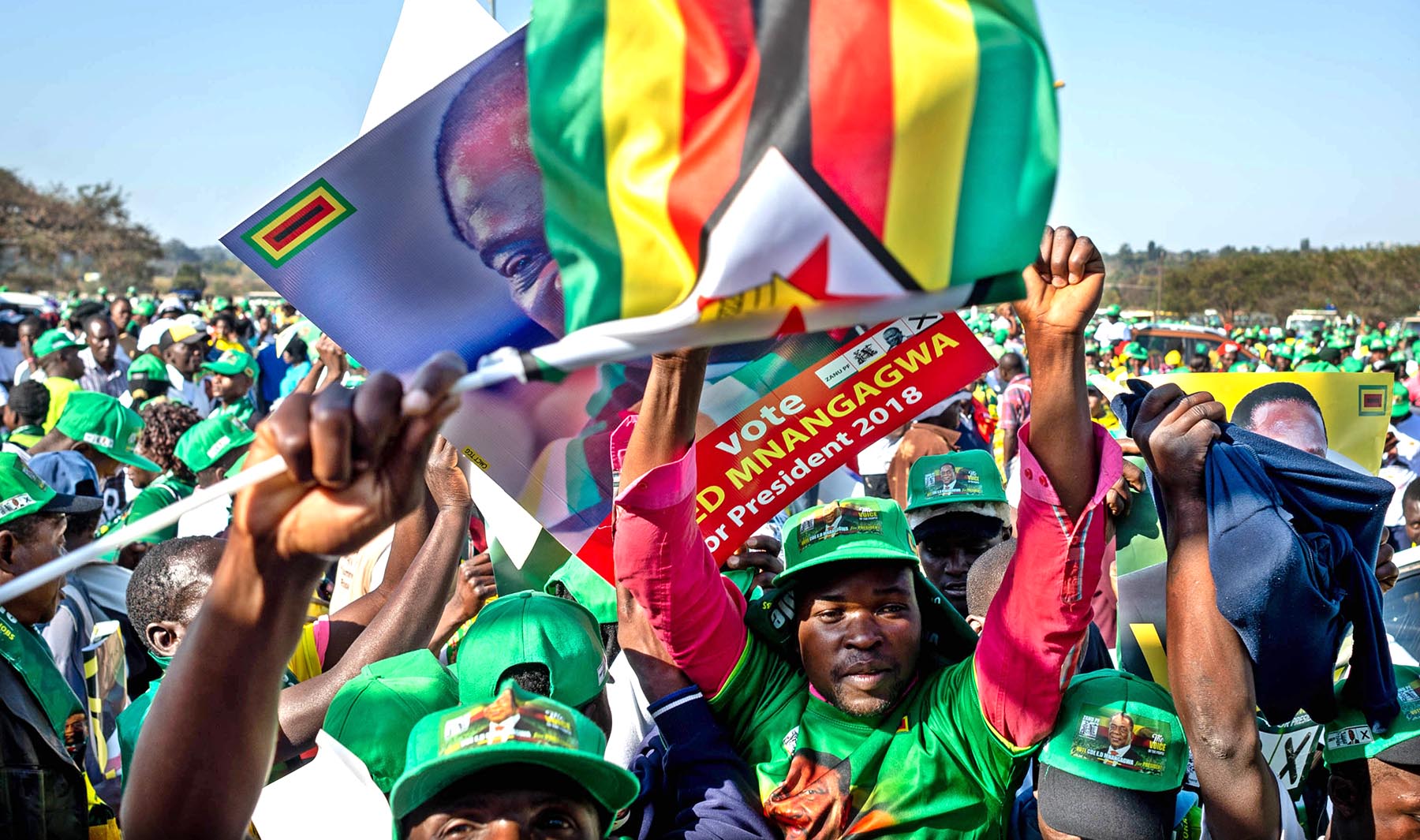 Zanu-PF supporters celebrate after a rally at the National Sports Stadium, Harare, Zimbabwe, 28 July 2018, before Zimbabweans went to the polls on 30 July 2018. (Photo: EPA-EFE / Yeshiel Panchia)
Zanu-PF supporters celebrate after a rally at the National Sports Stadium, Harare, Zimbabwe, 28 July 2018, before Zimbabweans went to the polls on 30 July 2018. (Photo: EPA-EFE / Yeshiel Panchia)
The army went into the streets of Zimbabwe on 1 August 2018 with live ammunition, and gunned down unarmed civilians in a move that screamed, “There’s a new sheriff in town.”
At 4am on 3 August, I posted this tweet:
So I just woke up to a Munangagwa "victory".
Inga!
Imagine knowing you won, but still sending army to murder anyone who thinks you didn't win&to clear the streets so that by the time you announce, there's no one to dispute.Then announcing in the dead of the night, like a thief.
— Thandekile Moyo (@Mamoxn) August 3, 2018
Emmerson Mnangagwa had been declared the winner of the election.
MDC-A and their president, Nelson Chamisa — the main opposition party at the time — contested the results in court but lost the case. Chief Justice Luke Malaba was accused by many Zimbabweans of being under the control of Zanu-PF.
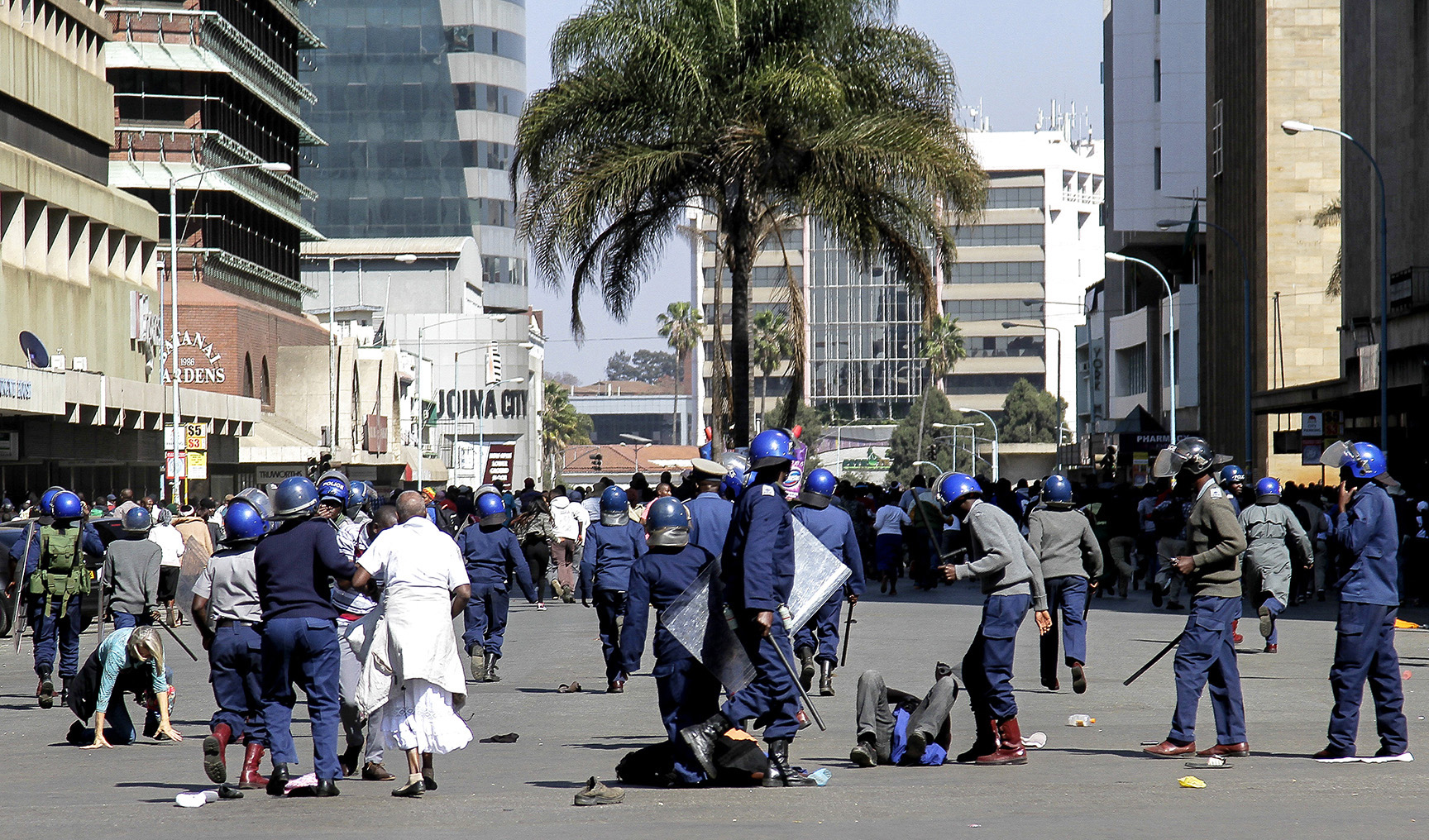 Injured demonstrators lie in the street as aprotest is driven back by riot police on 16 August 2019 in Harare, Zimbabwe. The Movement for Democratic Change called for protests against President Emmerson Mnangagwa and his government's management of the economy. Nearly two years after Mnangagwa took power, the country faced rising inflation, increased poverty and a severe water shortage. (Photo: Tafadzwa Ufumeli / Getty Images)
Injured demonstrators lie in the street as aprotest is driven back by riot police on 16 August 2019 in Harare, Zimbabwe. The Movement for Democratic Change called for protests against President Emmerson Mnangagwa and his government's management of the economy. Nearly two years after Mnangagwa took power, the country faced rising inflation, increased poverty and a severe water shortage. (Photo: Tafadzwa Ufumeli / Getty Images)
This meant the integrity and independence of the ZEC was being questioned. The opposition had demanded electoral reforms before the elections, but the ZEC had refused. This had implications for the integrity of the legislature, which is composed of a contested Zanu-PF majority.
The integrity of the judiciary was and still is questionable, due to mass wrongful arrests and jailing of dissidents that continue since the coup.
The integrity of the security sector is also questioned by many Zimbabweans. Civil society organisations have for the most part been silenced. All the institutions that are meant to protect the country and control the monopoly of violence, are compromised. Those that are meant to hold security institutions accountable have been silenced and/or co-opted.
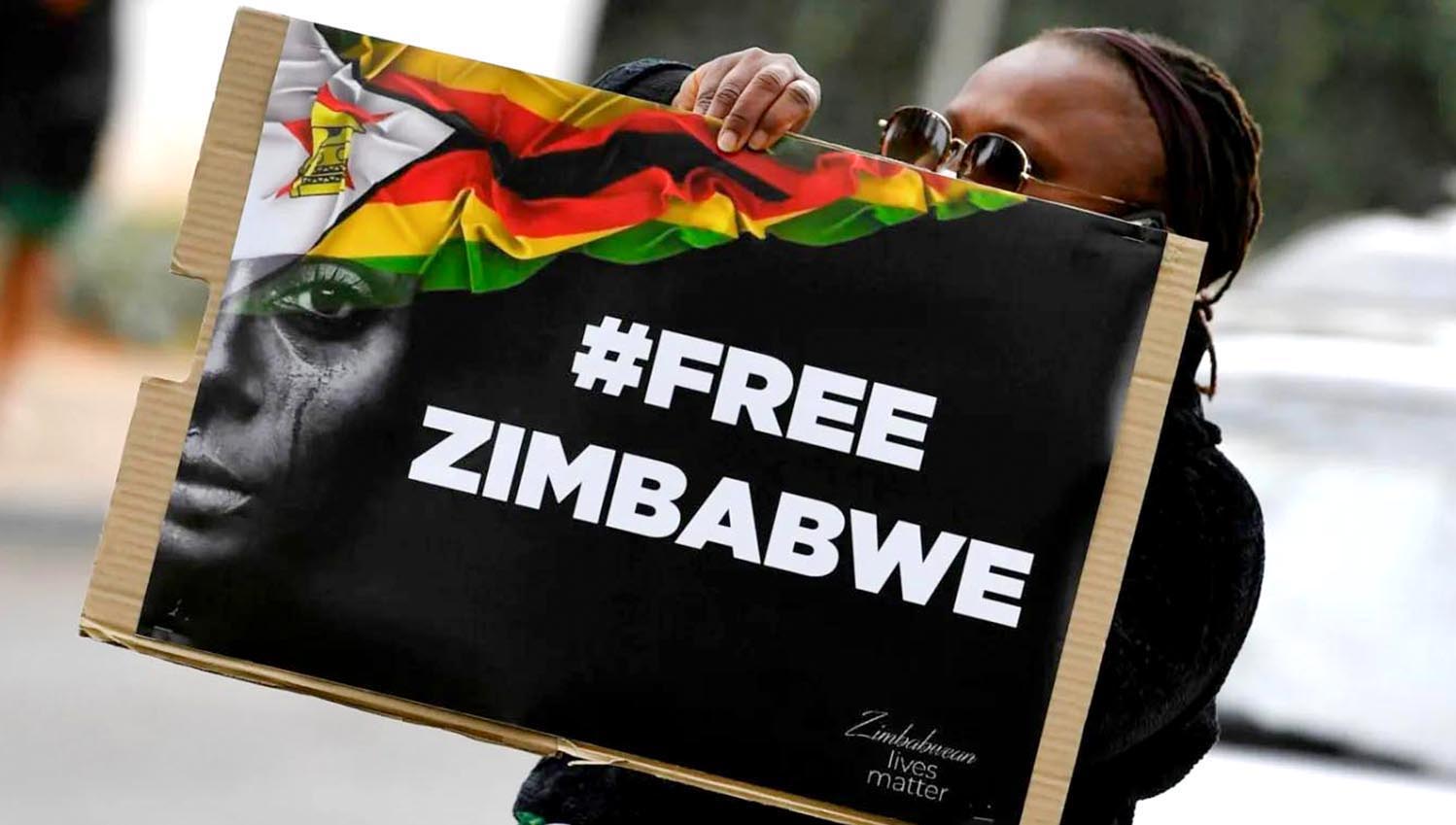 Members of Not In My Name SA Movement protest in solidarity with Zimbabweans at the Zimbabwean Embassy on 7 August 2020 in Pretoria. (Photo: Gallo Image / Lefty Shivambu)
Members of Not In My Name SA Movement protest in solidarity with Zimbabweans at the Zimbabwean Embassy on 7 August 2020 in Pretoria. (Photo: Gallo Image / Lefty Shivambu)
State collapse is defined as “the breakdown of government authority in maintaining law and order. It is often used to describe extreme situations in which state institutions are no longer able to function”.
Zimbabwe, is, therefore, by this definition, a collapsed state.
2023 elections
According to the constitution, Zimbabwe must hold its next elections by 31 July 2023. Now that all the institutions that are supposed to deliver free and fair elections are weak and malfunctioning, where is the integrity in holding an election before reforms are implemented?
The current main opposition party, the Citizens Coalition for Change, has been calling for electoral reforms. I, however, believe this call is well meaning, but short-sighted.
Of what use is a reformed ZEC surrounded by a weak and compromised judiciary, presidency, parliament, intelligence, military and police?
What are the chances that the army and retired generals now in government will allow the reforms to take place?
In an ideal world, what Zimbabwe needs — before we even talk about electoral reforms — is security sector reform.
The control of the monopoly of violence must be returned to the people of Zimbabwe. The armed forces must be stopped from violating civilians and violating human rights just to protect the political careers and ill-gotten wealth of a few individuals.
Visit Daily Maverick’s home page for more news, analysis and investigations
Where is the African Union and its policy of no indifference as Zimbabwe rolls into its 10th violent election? What exactly will it take for SADC, the AU and other relevant bodies to stop being indifferent to the conflict in Zimbabwe?
Now that electoral reforms and security sector reform might not happen by July, the only other option Zimbabweans have in the face of repression by the army — and the indifference and complicity of regional and international organisations — is peaceful resistance.
The army and Zanu-PF hooligans use intimidation to promote voter apathy. They must be resisted by Zimbabweans going out to vote in their numbers. What Zanu-PF and the criminal generals surrounding it fear the most, is the power of the people — the power of the vote.
The elections can only deliver victory if Zimbabweans treat them as a peaceful revolution.
Since nobody is coming to help, Zimbabweans have a choice to either continue being afraid and apathetic and thus let Zanu-PF continue to misrule, or to get up and register to vote — vote against Zanu-PF and then protect their vote.
We need a revolution.
#ZanuPFMustGo DM/MC
Thandekile Moyo is a writer and human rights defender from Zimbabwe. She is a peace and security fellow at the African Leadership Centre (ALC) where she is receiving training in Leadership, Peacebuilding, Security and Development. Moyo is passionate about human rights, post-conflict justice and storytelling. She uses print, digital and social media (Twitter: @mamoxn) to document and expose human rights abuses, bad governance and corruption in Zimbabwe. Moyo holds an honours degree in geography and environmental studies and is studying towards a Master’s degree in Development Studies at the University of Johannesburg.




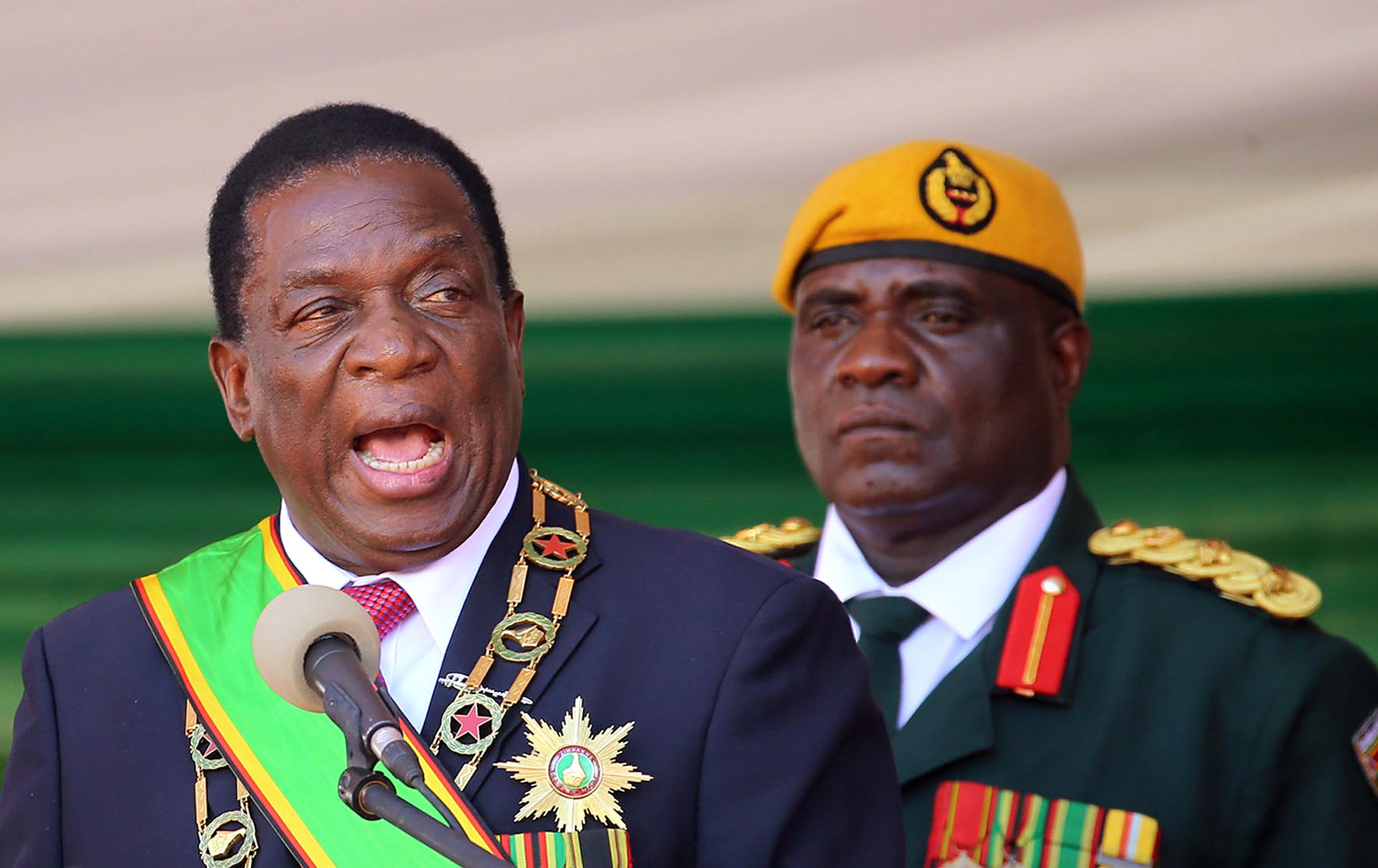 Members of Not In My Name SA Movement protest in solidarity with Zimbabweans at the Zimbabwean Embassy on 7 August 2020 in Pretoria. (Photo: Gallo Image / Lefty Shivambu)
Members of Not In My Name SA Movement protest in solidarity with Zimbabweans at the Zimbabwean Embassy on 7 August 2020 in Pretoria. (Photo: Gallo Image / Lefty Shivambu) 